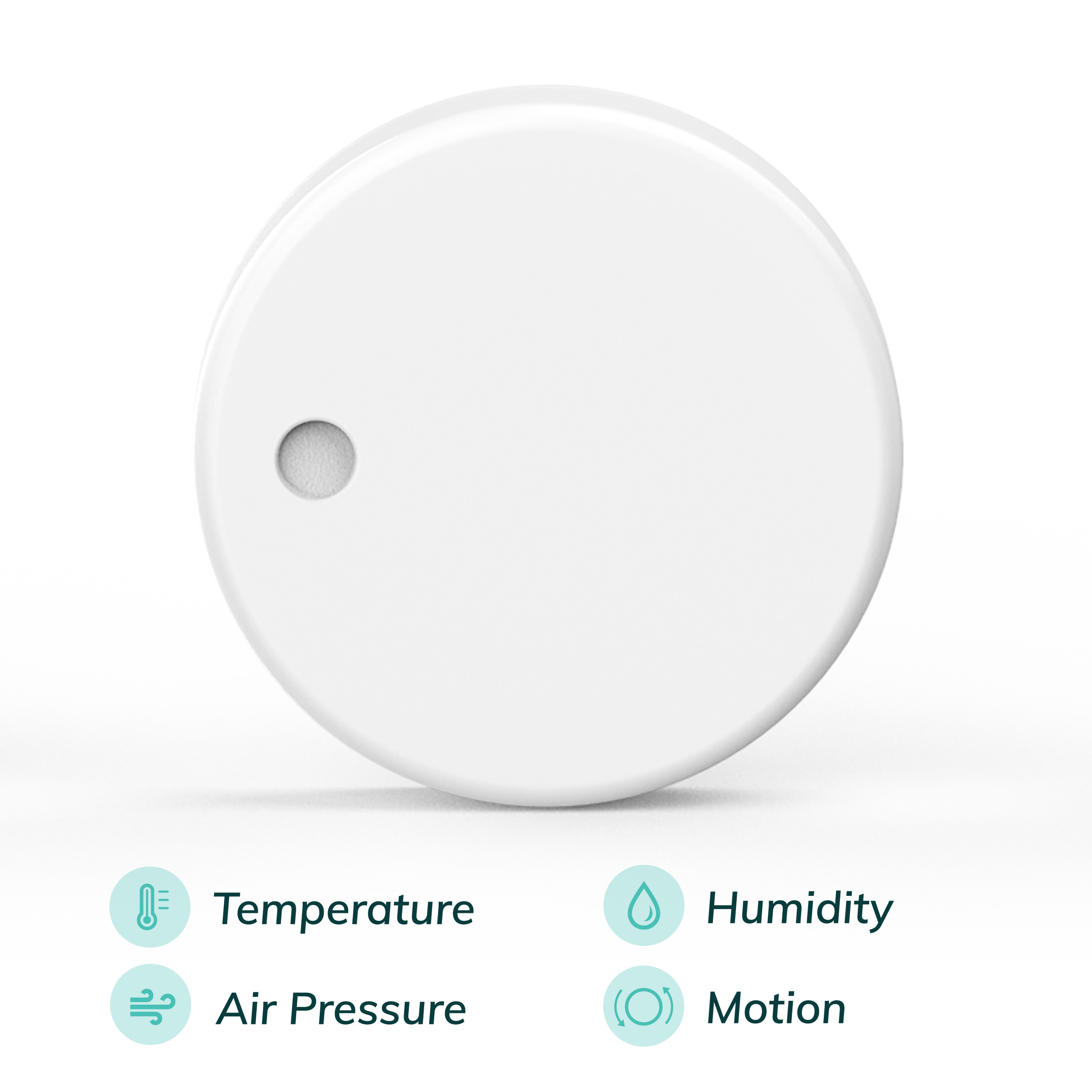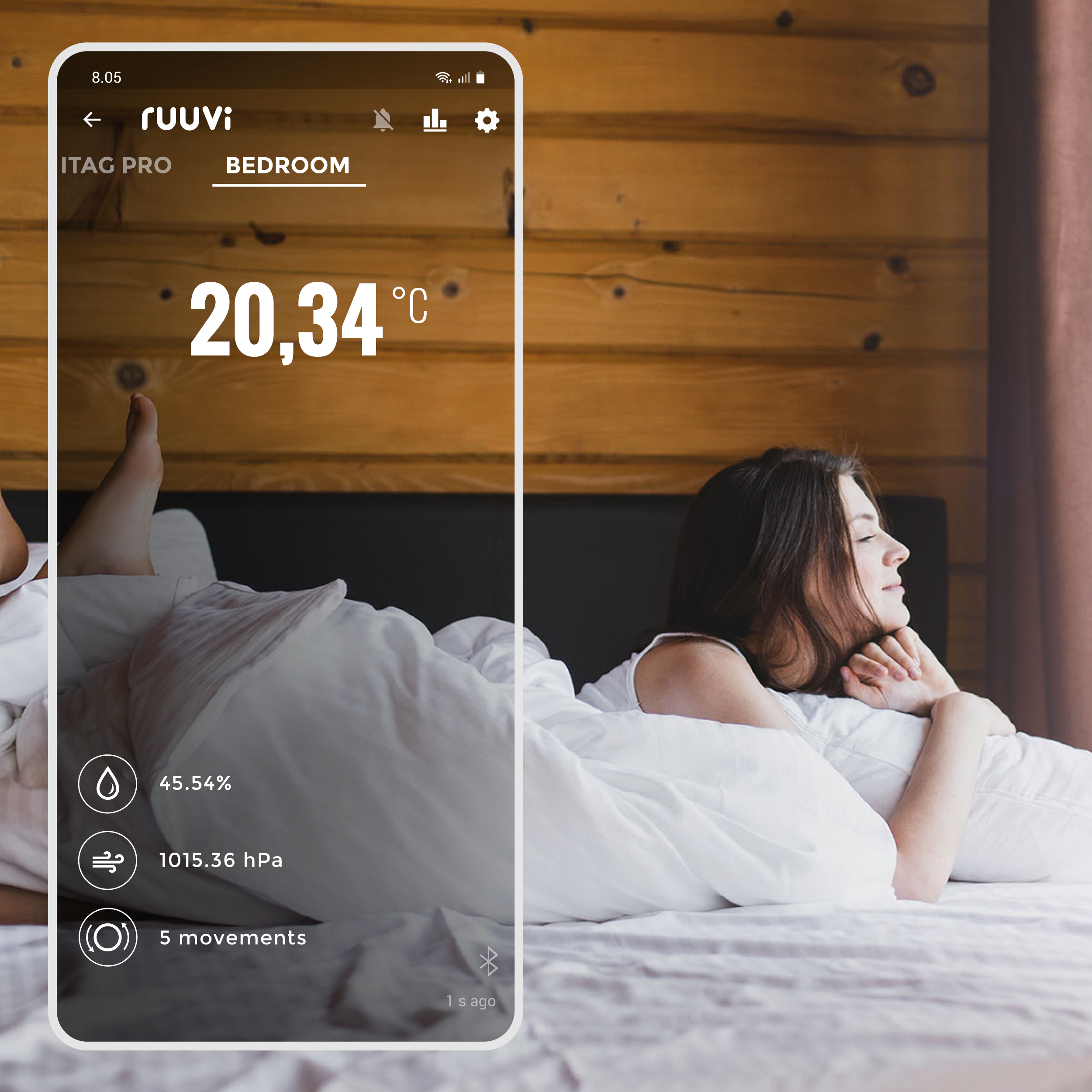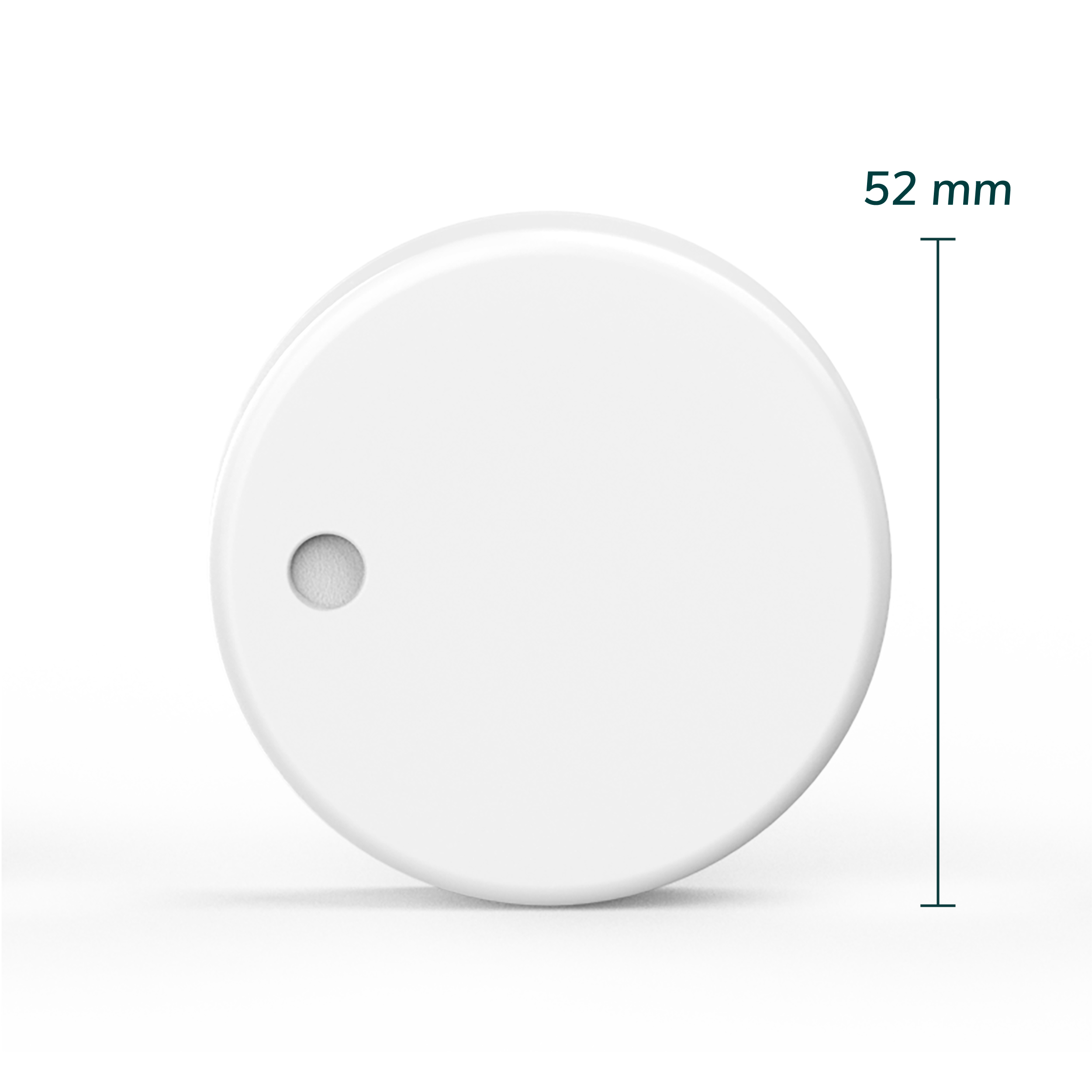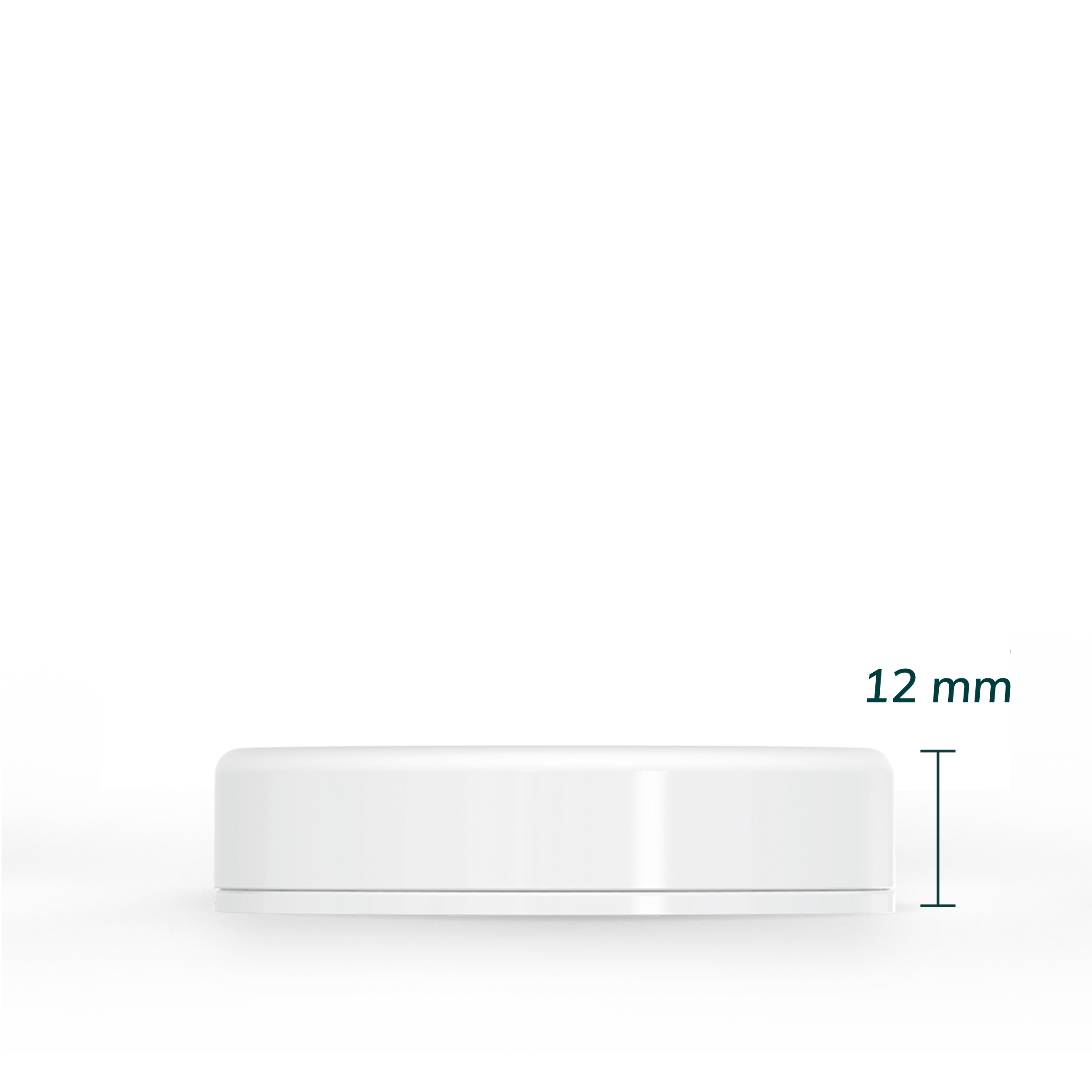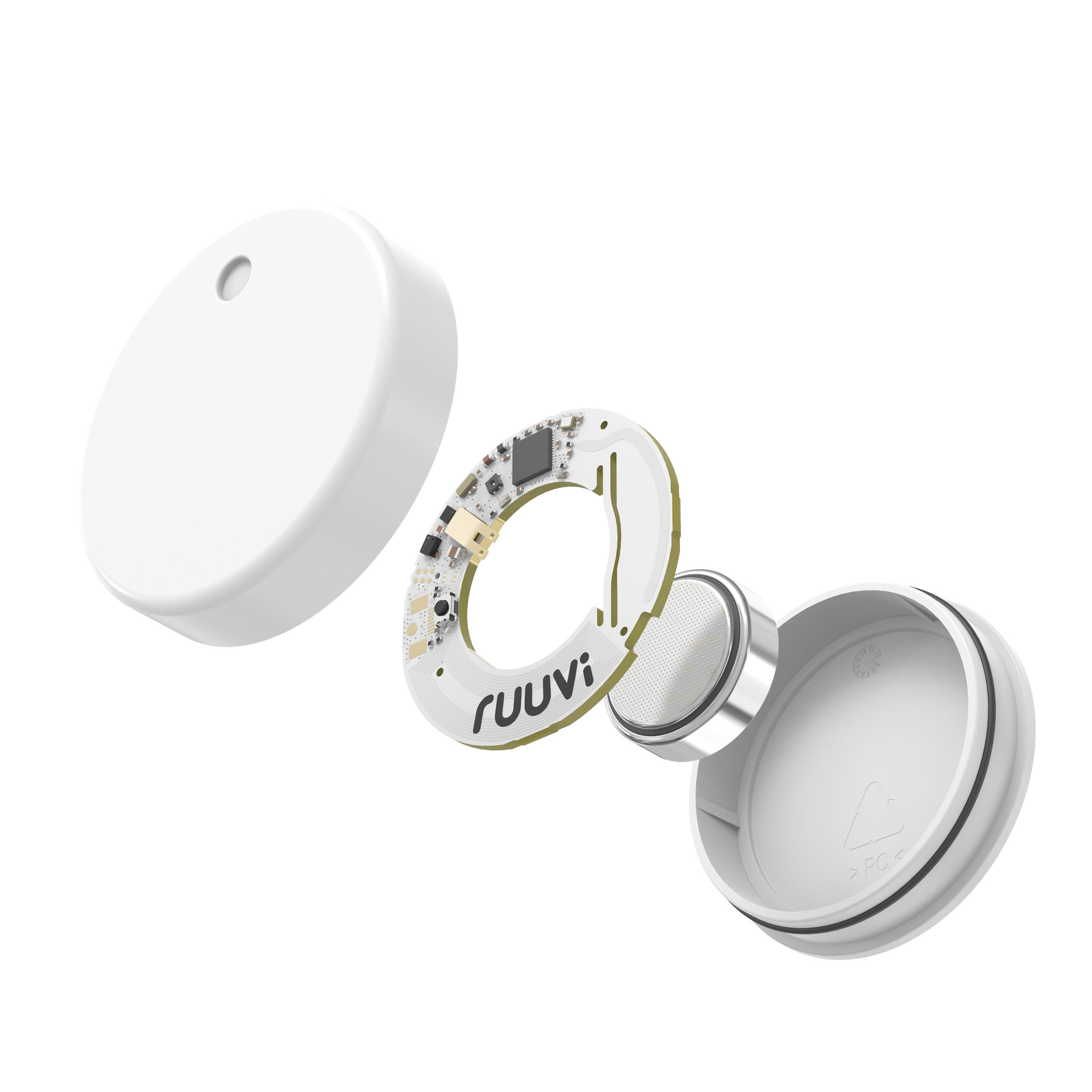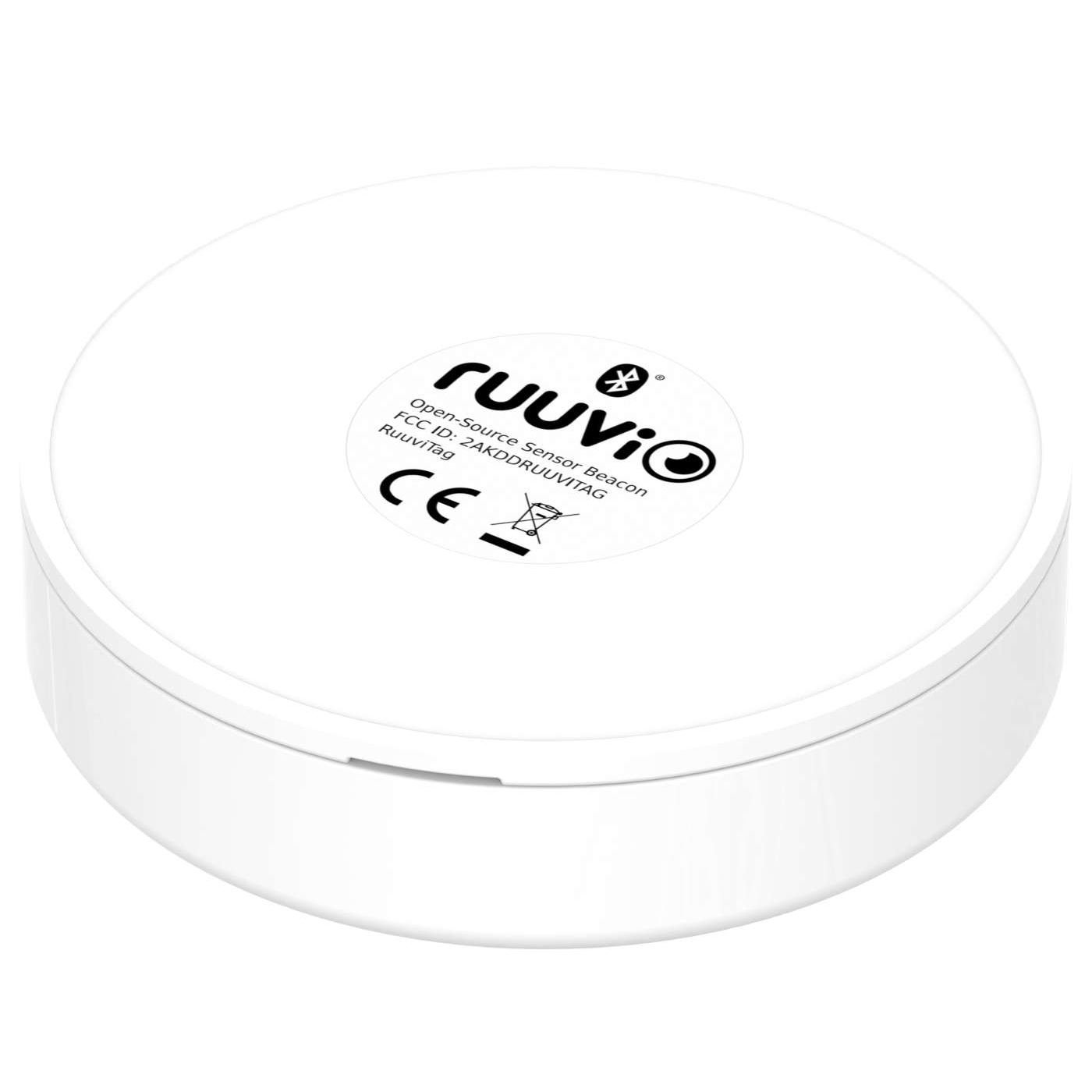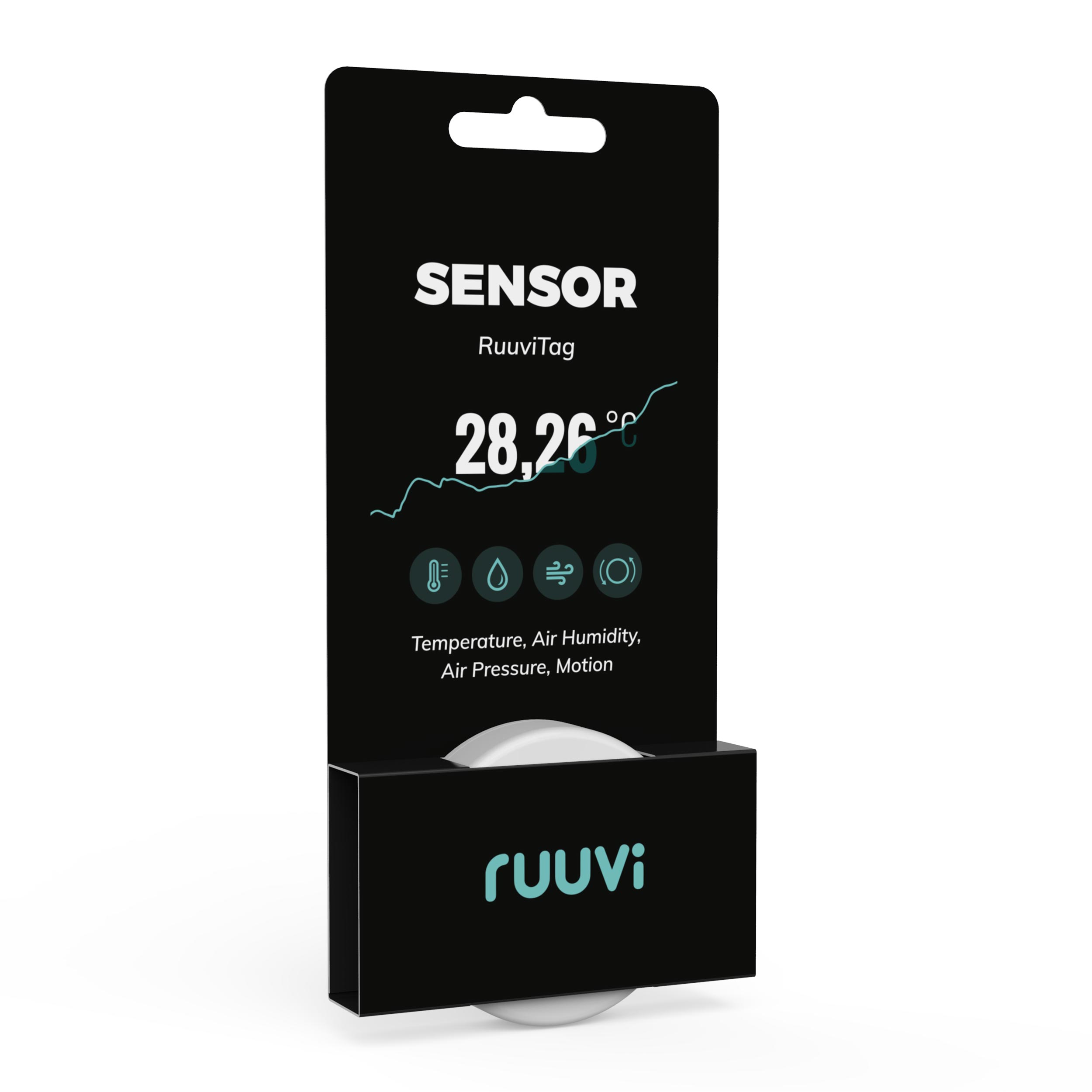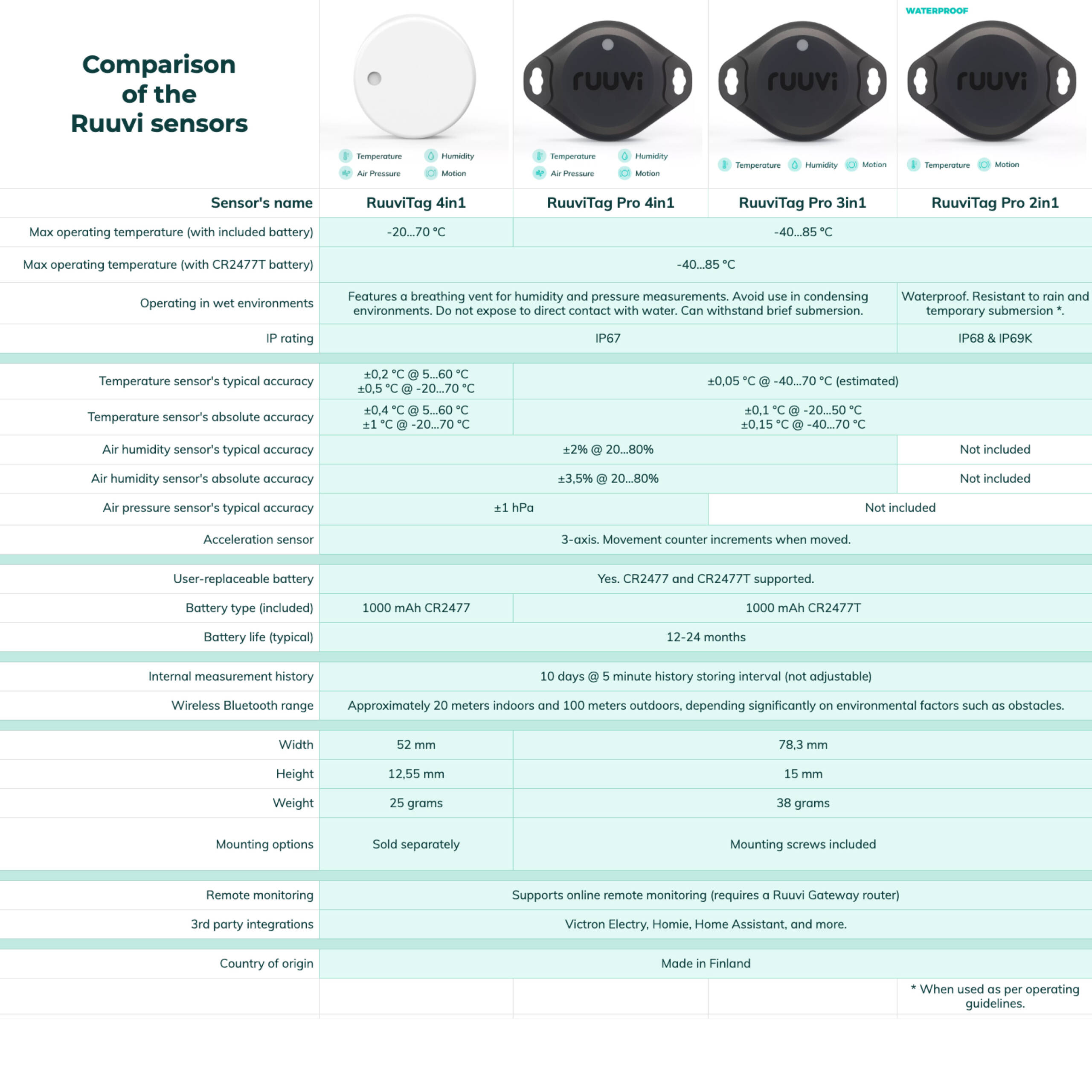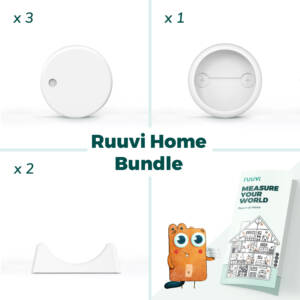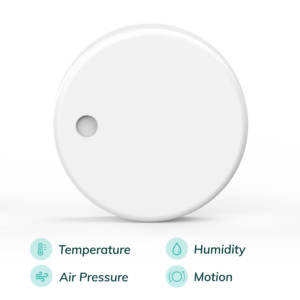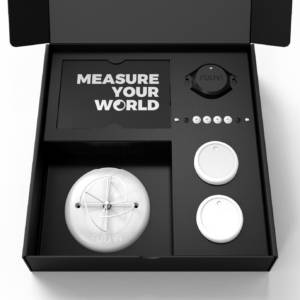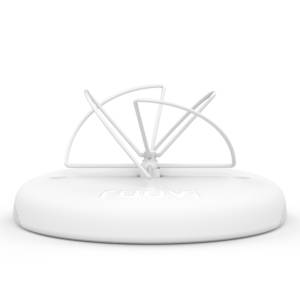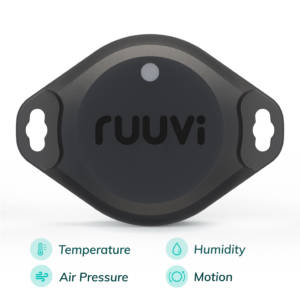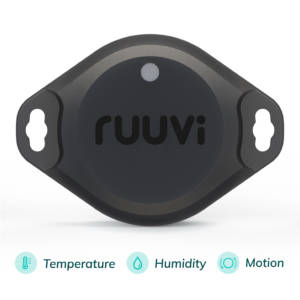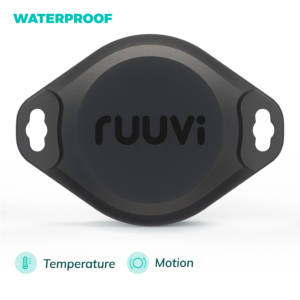In the world of healthcare, where every action can affect a person’s health, there’s one important thing that we often forget about – keeping medicines safe. Medicines need to be stored correctly to work well and to keep us healthy. But some medicines are very sensitive to temperature, and that makes things tricky. Hence, adequate medication safety and storage is crucial.
The way we store medicines is very important. It’s not just about keeping them in the right place; it’s about making sure they maintain efficacy and remain safe to use. Imagine it like this: medicines are like delicate tools, and they only work well when they’re in the right conditions. If things go wrong, it can be dangerous for your health. Here is more in-depth information from WHO.
This article is all about the important job of storing medicines the right way, especially when they need to stay cold. We’ll talk about why it’s so important and what can happen if we don’t do it right. It’s a journey into the heart of healthcare, where the safety of medicines is something we need to be able to trust.

Fundamental guidelines for storing medications
When it comes to storing medications, especially those that are temperature-sensitive, there are some fundamental guidelines that must be followed to ensure the drugs remain safe and effective. These guidelines are not just recommendations; they are essential for maintaining the integrity of the medicines and safeguarding your health.
Understanding the crucial role of temperature and humidity
Temperature and humidity are two critical factors in medication storage. Most medications have specific temperature and humidity requirements, and deviating from these ranges can have a detrimental impact on their stability and effectiveness. It’s a delicate balance that must be maintained.
Why does temperature matter?
Many medications should be stored at room temperature, typically between 20-25°C (68-77°F). Extreme temperatures, whether too hot or too cold, can cause chemicals in medications to break down, rendering them less effective or even completely inactive. Imagine trying to build a puzzle with missing pieces – that’s what taking a compromised medication is like.
Humidity’s role in the equation
Humidity, which is the amount of moisture in the air, can also affect medications. Excessive humidity can lead to the degradation of some drugs, while too little humidity can cause others to dry out and lose their effectiveness. It’s like finding the right balance of moisture for a plant to thrive; medications need their ideal humidity conditions.

Risks associated with improper medication storage
Improper medication storage can lead to various risks, affecting both your health and your wallet. Here’s a closer look at the potential consequences of not following the storage guidelines:
Loss of medication effectiveness
The most significant risk is the loss of medication effectiveness. When medications are not stored correctly, they may become less potent or completely inactive. This can lead to delayed recovery, inadequate treatment, or even worsened health conditions.
Contamination concerns
Medications can become contaminated when exposed to moisture, dirt, or foreign substances. Contaminated medicines can cause adverse reactions or infections when ingested or applied. For individuals with a weakened immune system, these risks are particularly dangerous.
Safety hazards
In households with children or pets it is necessary to take extra precautions to prevent unsupervised access to medications. Accidental ingestion or medication mix-ups can lead to minor discomfort or severe health complications.
By following these fundamental guidelines for medication storage, you can ensure the safety, efficacy, and integrity of the drugs you rely on. It’s not just about following rules; it’s about taking an active role in your health and well-being.
The significance of cold storage for medications
Cold storage for medications holds a paramount significance in healthcare and pharmaceutical management. It is not merely a suggested practice; it is a fundamental requirement to preserve the safety, effectiveness, and integrity of temperature-sensitive drugs. These drugs, which include vaccines, insulin, and specific antibiotics, contain active ingredients highly susceptible to temperature fluctuations, making proper cold storage an indispensable safeguard.

Temperature-sensitive drugs and their vulnerability to temperature fluctuations
Temperature sensitive drugs are a distinct category of medications that necessitate precise temperature control throughout their storage and distribution. These drugs are formulated to be effective within specific temperature ranges, often falling between 2-8°C (36-46°F). Not following these temperature rules can be really bad for their integrity. It’s like trying to keep your balance, just like a tightrope walker moving carefully in a tricky place.
Temperature fluctuations can lead to the degradation of the active ingredients in these drugs. For example, insulin will lose most of its effectiveness if it freezes. You can read more about storing insulin here!
The importance of proper cold storage for medication safety and effectiveness
Proper cold storage for medications is paramount to ensure both safety and effectiveness. Let’s delve into why this is so crucial:
Preserving efficacy
Maintaining the recommended temperature range is vital to preserving the efficacy of medications. Vaccines, for example, can fail to provide adequate immunity when stored improperly, leaving individuals vulnerable to preventable diseases. Insulin, when exposed to temperature fluctuations, may become less effective in regulating blood sugar levels.
Minimising contamination
Temperature-sensitive drugs, particularly those intended for injection, must remain sterile. Incorrect storage conditions can cause spoilage and growth of unwanted pathogens, jeopardising the medications’ safety and effectiveness. Contaminated drugs can lead to adverse reactions or infections, further compromising health.
Preventing unauthorised access
Many temperature-sensitive drugs are not only medically essential but also valuable commodities. Enforcing security measures, such as locked refrigerators or restricted access, is essential to safeguard public health and prevent unauthorised use or tampering with these valuable drugs.
In essence, proper cold storage is the linchpin of responsible healthcare management, especially for temperature-sensitive medications. It goes beyond mere compliance with guidelines; it is about ensuring the safety and efficacy of these critical drugs. By adhering to the principles of proper cold storage, healthcare providers and individuals can safeguard health, prevent disease, and reduce healthcare costs.
Practical tips for travellers with temperature-sensitive medications
Travelling can be an exhilarating experience, whether it’s for a short weekend getaway or an extended journey. However, for individuals who rely on temperature-sensitive medications, it also introduces a unique set of challenges. These medications, including insulin, vaccines, and specific antibiotics, are meticulously formulated to function effectively within specific temperature ranges.
Deviations from these guidelines can have an impact on their safety and efficacy. Here, we offer some practical tips for travellers to ensure the integrity of their temperature-sensitive medications while on the go.
Adhere to medication storage guidelines
The first and foremost rule of travelling with temperature-sensitive medications is to adhere rigorously to medication storage guidelines. Check the packaging or consult your healthcare provider for specific temperature requirements. Typically, these guidelines fall within the range of 2-8°C (36-46°F). It’s essential to be aware of these requirements and plan your travel accordingly.

Portable medication cooling solutions
Investing in a portable medication cooler or a thermal travel pouch can be a game-changer for travellers with temperature-sensitive medications. These specialised containers are designed to maintain a consistent temperature, ensuring your medications remain within the recommended range. They often come equipped with cooling packs or the ability to hold ice packs, offering peace of mind, especially when you’re on the move.
Ensure that your medications are placed securely within the designated compartments of the cooler or pouch, preferably in their original packaging. Original packaging often provides an extra layer of protection from light and moisture, both of which can affect the stability of the drugs.
Regular temperature monitoring
While travelling, it’s crucial to keep a watchful eye on the temperature of your medication storage. Portable digital thermometers are practical tools for this purpose, allowing you to periodically check that your medications are within the recommended temperature range. Air travel, in particular, might involve layovers or stops where monitoring the temperature of your medication storage becomes crucial.
Have a contingency plan
When travelling with temperature-sensitive medications, it’s always wise to have a contingency plan in place. This may include carrying extra doses of your medication, creating a list of nearby pharmacies or healthcare facilities at your destination, and keeping the contact information of your healthcare provider handy. Unexpected delays or temperature fluctuations can occur, so being prepared offers peace of mind during your travels.
Introducing RuuviTag: precise sensor for medication safety and storage
In the ever-evolving landscape of healthcare and pharmaceuticals, innovation and precision are the driving forces behind ensuring the safety and efficacy of medications. Meet RuuviTag, a groundbreaking Bluetooth sensor technology that’s changing the game. Let’s delve into how RuuviTag is transforming the way we monitor and manage temperature-sensitive medications.
RuuviTag is a really accurate Bluetooth sensor whose battery functions for 12-24 months depending on the temperature of the environment.
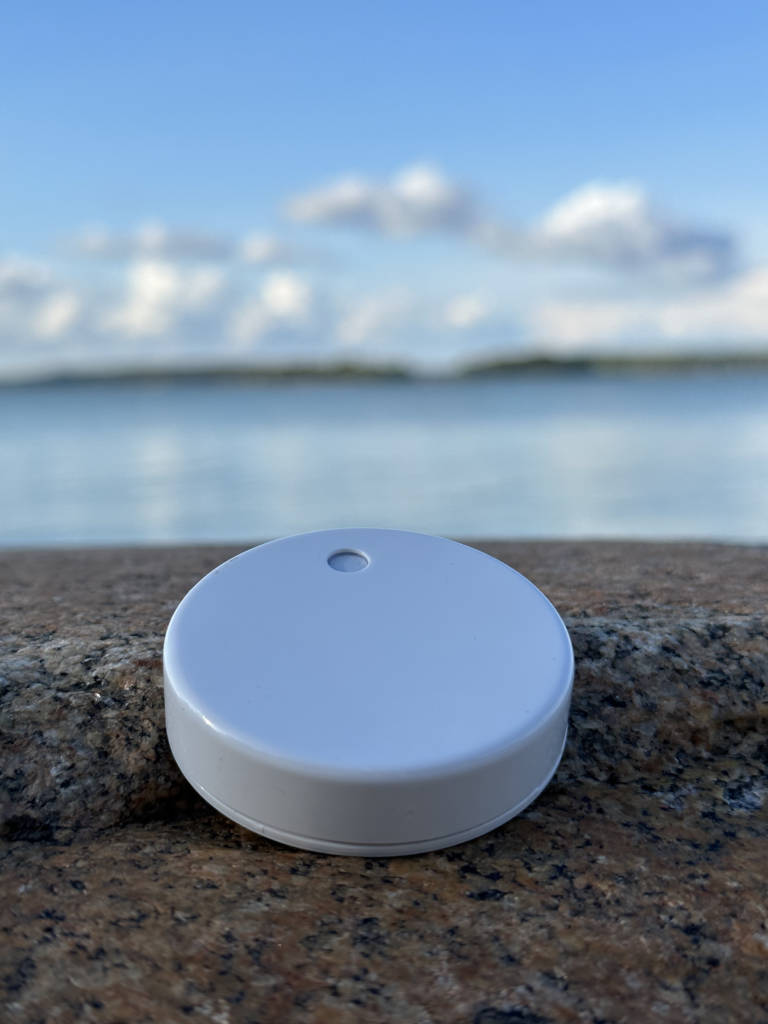
 Introducing RuuviTag: small, durable and accurate environmental sensor.
Introducing RuuviTag: small, durable and accurate environmental sensor.Real-Time temperature monitoring with RuuviTag
At the core of RuuviTag’s capabilities is its real-time temperature monitoring. This small, yet powerful device is designed to keep a constant watch over temperature conditions. For healthcare facilities, pharmacies, and individuals, RuuviTag serves as an invaluable tool to ensure that medications are consistently stored within the recommended temperature range.
RuuviTag measures air temperature, humidity, pressure and movement. It sends all of this data every 2.5 seconds via Bluetooth to nearby devices. You can use Ruuvi’s mobile app to read the data, get Ruuvi Gateway to read the data over the Internet or build your own set-up. All of Ruuvi’s products are open-source, which means that you can easily integrate them into your own systems.
Applications in medication storage and cold chain management
RuuviTag’s applications in medication storage and cold chain management are multifaceted. For medications requiring precise temperature control, like vaccines and insulin, RuuviTag can be strategically placed within refrigerators and storage units. It continuously records temperature data and sends alerts when conditions fall outside acceptable parameters. This proactive monitoring helps prevent medication compromise due to factors such as refrigerator malfunctions or power outages.
Real-World Examples and Benefits in Healthcare
RuuviTag has an internal memory of 10 days. This means that it can be used to measure temperatures during a transportation, even if no one is monitoring the temperature constantly. The actual temperatures can be examined afterwards and the entire cold chain can be approved.

For example, a start-up Summa is using RuuviTags in this manner, read more about it here!
Also, our customers have told us about using RuuviTags in their medicine freezers. As they are battery powered, they function during power outages. More information about medicine freezers can be found here.
Moreover, RuuviTag’s integration with centralised monitoring systems enables healthcare providers to have a holistic view of cold chain compliance across multiple storage units or facilities. This streamlines the management of temperature-sensitive medications and prevents costly spoilage.
The benefits of RuuviTag extend beyond ensuring medication safety. Its cost-effectiveness and efficiency make it a valuable asset for healthcare providers, reducing the risk of medication losses and the need for costly replacements. As healthcare continues to embrace technology for better patient care, RuuviTag is leading the way with its transformative impact on medication storage and cold chain management.
The significance of real-time temperature monitoring
The storage of medications, particularly those that are temperature-sensitive, is a task that healthcare providers and individuals must approach with unwavering precision. Maintaining the prescribed temperature conditions is paramount for ensuring the safety and efficacy of these vital drugs.
However, it’s not enough to merely set the right temperature; one must continuously monitor and act upon any deviations. This is where RuuviTag enters the scene, offering real-time temperature monitoring that goes above and beyond traditional methods. RuuviTag is made to be used by everyone. Its set-up is as easy as it can get and it’s affordable enough for consumers to use all around the world.
RuuviTag’s role in real-time temperature monitoring
RuuviTag, equipped with cutting-edge technology, is designed to provide real-time temperature monitoring. Placed strategically within refrigerators, cold rooms, or even portable medication coolers, RuuviTag ensures that medications are stored under the precise temperature conditions required.
RuuviTag continuously records and analyses the temperature data, sending immediate alerts when conditions fall outside the recommended range. This proactive approach is invaluable for ensuring the integrity of temperature-sensitive medications.
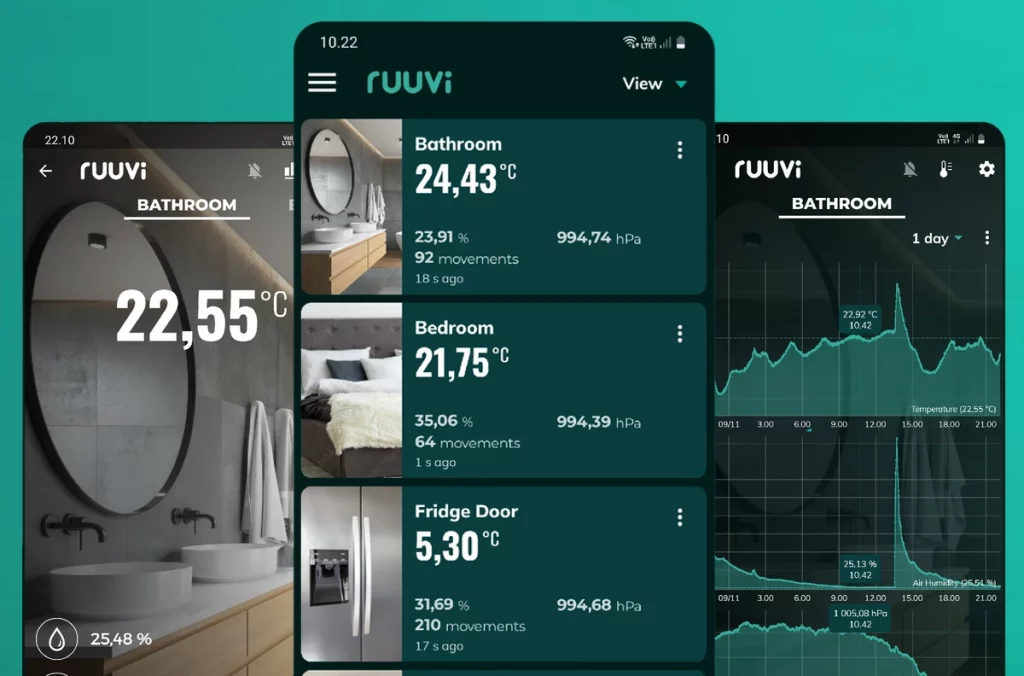
With Ruuvi Gateway, you are able to listen to RuuviTags’ Bluetooth messages over the internet. Ruuvi Gateway makes sure that temperature monitoring is constant regardless of one’s place and time. Ruuvi Gateway offers a possibility to save temperature data for up to two years.

The consequences of inadequate temperature control measures
The financial implications of temperature mishandling cannot be underestimated. Healthcare facilities and providers may face substantial losses due to the need for replacement medications, re-vaccination, or potential legal liabilities resulting from medication mismanagement. Moreover, the environmental impact of wasted medications, whether through improper storage or disposal, cannot be ignored.
In conclusion, the importance of real-time temperature monitoring for medications, particularly temperature-sensitive ones, is a cornerstone of healthcare management.
RuuviTag’s capabilities provide the means to safeguard the safety and efficacy of these essential medications, ensuring they fulfil their intended purpose. The consequences of inadequate temperature control measures are extensive and far-reaching, underscoring the necessity for advanced technologies like RuuviTag in the realm of healthcare and pharmaceuticals.
Conclusion: safeguarding medication safety with RuuviTag
In conclusion, the key takeaways are clear. Safeguarding medication safety through advanced temperature control measures is not just a choice but a necessity. RuuviTag stands as a beacon in this endeavour, offering real-time temperature monitoring to protect the integrity of vital medications.
Note! Ruuvi’s products are not designed or manufactured for a medical use and should not be used for critical or life supporting applications. For medical products such as insulin, check the product packaging for proper instructions and storage conditions. We do our best to keep our hardware and software in the best possible condition, but we do not guarantee 100% availability and data integrity. The information on this page is in no way a substitute for information or advice from medical professionals and should not be followed if it conflicts with previously obtained information or advice. The use of RuuviTag is at your own risk and Ruuvi Innovations Ltd is not responsible for any damage caused by its equipment.
Get RuuviTag to ensure medicine storage
Buy Yours Now!
39,90€
Ruuvi is based in Finland. If you’re an EU consumer, VAT is included. If you’re a non-EU customer, you don't pay VAT. If you're an EU business, insert your VAT ID at checkout.
In stock
RuuviTag Sensor (4in1)
| Quantity | Unit Price(€) |
|---|---|
| 1 | 39,90 |
| 2 | 37,40 |
| 3-5 | 36,90 |
| 6-8 | 35,90 |
| 9-12 | 34,90 |
| 13-25 | 33,90 |
| 26-99 | 32,90 |
Are you looking for bigger quantities? Contact us for pricing.
FAQ
What is the proper way to store medicine?
The proper way to store medicine involves several key steps:
Check the Storage Instructions: Always check the storage instructions on the medication label. These instructions specify the ideal temperature and humidity conditions for proper storage.
Keep Original Packaging: Medications should be kept in their original packaging whenever possible. The original packaging often provides protection from light and moisture, which can affect drug stability.
Maintain Ideal Temperature: Most medications should be stored at room temperature, typically around 20-25°C (68-77°F). Extreme temperatures, whether hot or cold, can affect the stability of medicines. It’s essential to avoid storing medications in places with temperature fluctuations, like the bathroom.
Follow Medication Expiry Dates: Always check the expiration date on medication packaging. Never use medications that have expired, as their efficacy may be compromised.
Secure Medications: If you have children or pets in your household, ensure that medications are stored securely to prevent unauthorised access. This minimises the risk of accidental ingestion and medication mix-ups.
Dispose of Expired or Unused Medications: Regularly review your medicine cabinet and dispose of expired or unused medications through safe and approved methods. Many communities have medicine disposal programs in place to ensure proper disposal, reducing environmental impact and protecting public health.
These steps are fundamental to maintaining the efficacy, safety, and integrity of your medications. Always consult your healthcare provider or pharmacist if you have specific questions about storing a particular medication.
What is the temperature for medicine storage?
The ideal temperature for medicine storage can vary depending on the specific medication. Here are some general temperature guidelines:
Room Temperature: Many medications should be stored at room temperature, typically around 20-25°C (68-77°F). This range is suitable for the majority of common medications.
Refrigeration: Some medications, like certain antibiotics and insulin, must be refrigerated. For these medications, the recommended storage temperature typically falls between 2-8°C (36-46°F).
Freezing: It’s crucial to avoid freezing medications, as this can damage the structure of some drugs, rendering them ineffective.
Heat and Humidity: Medications should also be protected from excessive heat and humidity, so avoid storing them in places like the bathroom, where temperature and humidity fluctuations are common.
Remember that specific medications may come with their storage instructions, and it’s important to follow those recommendations for each medication. Always check the storage instructions on the medication label and consult your healthcare provider or pharmacist if you have any doubts about the proper temperature for storing a particular medication.
Is it better to store medicines in the fridge?
Storing medicine in the fridge is better for some medications, especially those that require refrigeration to maintain their effectiveness. Medications like certain antibiotics and insulin are examples of drugs that must be stored in the fridge at temperatures typically ranging from 2-8°C (36-46°F). . Keeping them in the fridge helps ensure they remain stable and safe to use.
However, it’s important to note that not all medications should be refrigerated. Some are meant to be stored at room temperature (around 20-25°C or 68-77°F). Storing these medications in the fridge could actually harm their effectiveness.
So, the key is to follow the specific storage instructions provided on the medication label or by your healthcare provider or pharmacist. Always check these instructions to determine whether your medicine should be stored in the fridge or at room temperature, and make sure to adhere to those guidelines to maintain the medication’s quality and safety.
